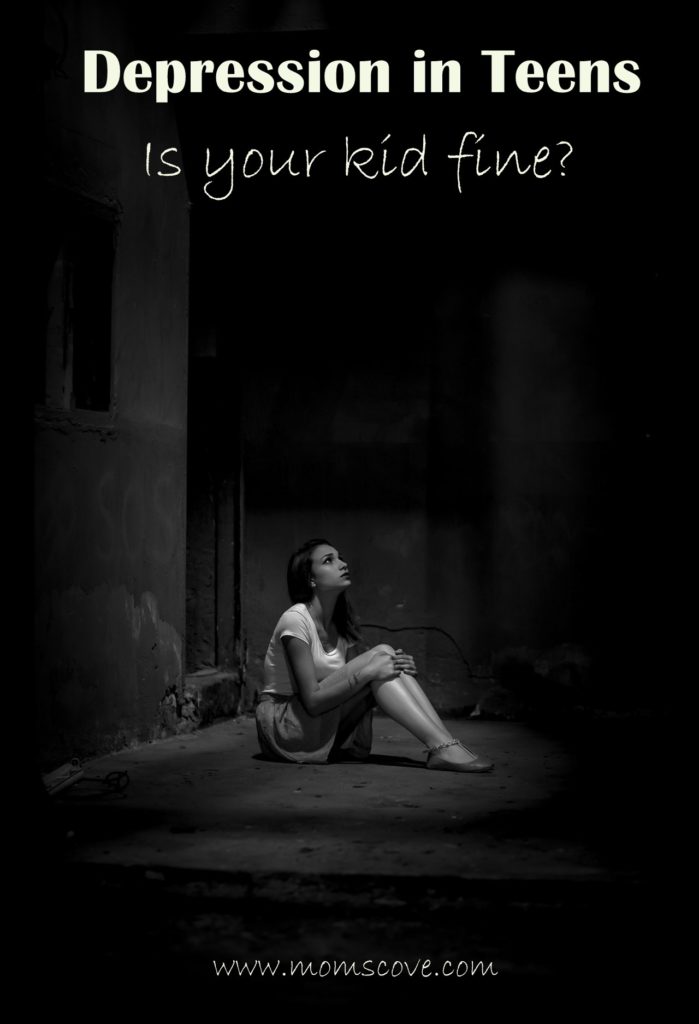
Teen depression can be devastating and take on a wide variety of forms, but its most significant threat is often in just how misunderstood it is. Most people’s understanding of depression develops from social conjecture and inaccurate depictions in the media. Even those who do have an accurate knowledge of depression don’t necessarily understand how to deal with it. Parenting a teenager suffering from depression can lead to frustration and feelings of helplessness, but it doesn’t have to be hopeless. A little knowledge can go a long way. So here are some of the basic facts about depression in teens, how it affects teens, and what you can do to help treat it.
You may also want to read
1:Emotions for kids: 6 Actionable Tips to Increase Emotional Intelligence
2.Self Esteem Building Activities For Kids To Make Them More Confident
What is teen depression?
The first thing you need to know: depression is not sadness. It’s not about feeling unusually down or having a bad day. It’s something more than that, a pervasive sense of despair that doesn’t fade with time. It can be tempting to think that a person with depression should weather the storm and get over it, but that’s not how it works.
Depression also doesn’t just affect how you feel, but also what you’re capable of doing. It can completely transform moods and prevent people from completing even basic tasks. It can feel like a person with depression is taking on an entirely new personality, not to mention how it can affect their appetite and sleep patterns.
Treating depression in a teenager isn’t always as simple as a trip to the doctor and some medication either. Some types of medicine won’t work for certain people, and some people may need therapy to start recovering.
Who does depression affect?

Contrary to popular opinion, depression doesn’t strictly affect people that have “earned” it via traumatic pasts. Depression can appear for a wide variety of reasons in a wide range of people. It can affect young teenagers that feel pressure to perform well in studies or sports as well as adults that have stable jobs and happy relationships. There’s no guaranteed way to predict who will get depression. A person can go through intense trauma and not suffer from depression, just like someone with an outwardly happy life can suffer deeply from it.
Therefore, you mustn’t think about your teen’s depression in terms of what they have and haven’t suffered. There’s no magical threshold where a certain amount of suffering will result in depression. You probably aren’t aware of everything that goes on in their lives anyways. They may be dealing with stress over grades, sports, their social life, romance, or any other number of things.
What are the symptoms of teen depression?
There may be symptoms of major or mild depression in teens. Are you aware of the signs and symptoms of depression in teens? For teenagers, some specific behavior patterns may indicate depression.

1. Drug and alcohol abuse
A lot of teens experiment, but for teens that are suffering from depression, it can be very easy to develop addictions to drugs and alcohol. The appeal of dulling the pain and forgetting their problems can be overwhelming. From there, it’s too easy to spiral into addiction and complete reliance on substances to feel normal.
2. Poor grades
There are a lot of reasons why a teen might start to do poorly at school, but if you notice a sudden change in your teen, you should talk to them. Educational performance can be a vicious cycle of failing to perform, punishing yourself or being reprimanded by authority figures, being too distracted or unable to perform better, then the punishments increasing.
3. Poor self-esteem
Depression can often manifest in very low self-esteem where a teen looks down on themselves for how they feel. This criticism can turn into a dislike of their own appearance, voice, performance, and personality.
4. Smartphone/social media/internet addiction
It’s hard to get away from the internet today, but that only makes it more critical that you speak with your teen about any reliance they may be forming. If they use social media as a substitute for real human contact and prefer their online persona to their real-world selves, then that can be a prominent indicator of depression.
5. Violence
Some people lash out violently when depressed. This behavior can stem from a desire to have an impact on the world, regardless of whether it’s positive or negative. In many cases, this comes from feeling helpless in a way that depression makes easy.
How likely is suicide?
The biggest fear for parents is that their teen will resort to suicide. This concern can prompt behavior that comes off as aggressive and controlling to the teen in question, but it is necessary in some cases. The simple truth is that getting the facts and taking a calm approach can be the best way to help a teen that is considering suicide. If you’re wild, emotional, and frantic, that may rub off on them and lead to mistakes that you cannot take back.
Statistics show a rise in suicide rates in teens. Out of every 100,000 girls 15-19 years old, 5.1 commit suicide each year. For boys in the same age range, it’s 14.2 per 100,000. Depending on your perspective, this can sound like a lot or not very much. However, it’s important to keep in mind how it stacks up to the number of teens suffering from depression. According to some studies, the depression rate among teens is as high as 11.3%.
This statistic ultimately means that one in ten teenagers are depressed, but only a tiny fraction of that commit suicide. No one is saying that you shouldn’t worry about your child hurting themselves. But if there are no other warning signs, growing alarmed may do more harm than good.
What can you do to help a teen with depression?
Determining if your teen has depression is difficult, but the next part is even harder. Figuring out how to help them can feel like an exercise in futility. But listening and handling the matter with the patience it requires is paramount.
To start with, lecturing your teen isn’t going to produce any real results. It may feel like you’re doing something, but at most, you’re regurgitating information that they likely already know. At worst, you’re patronizing and demonstrating ignorance of their problems. What they need is someone who will listen and try to understand, not force information onto them as though it will be an easy solution.
When you do talk to your teen, make sure you prioritize their thoughts and feelings. You can deliver information to help them out but try not to talk over their personal experiences with it. That doesn’t mean that you necessarily have to understand what they’re going through. You just need to listen and be there for them.
Just as you don’t want to be too forceful, you also don’t want to give up quickly. Helping a teen through depression is a long and potentially thankless road, but they need you there. Continuous support can be as much as getting a therapist and listening to them whenever they need it or as little as being there for them to talk to when they finally feel like opening up. Every teen is different, but most require you to be ready to meet them halfway.
What should you do?
If you suspect that your teen is suffering from depression, then it’s critical that you approach the issue with tact and understanding. Try to open dialogue rather than dominating the conversation. They may need help that you are able to provide, but they may also need something else entirely. The only way to start on the road to understanding is to have a conversation and view the situation from their perspective.
Leave a Reply